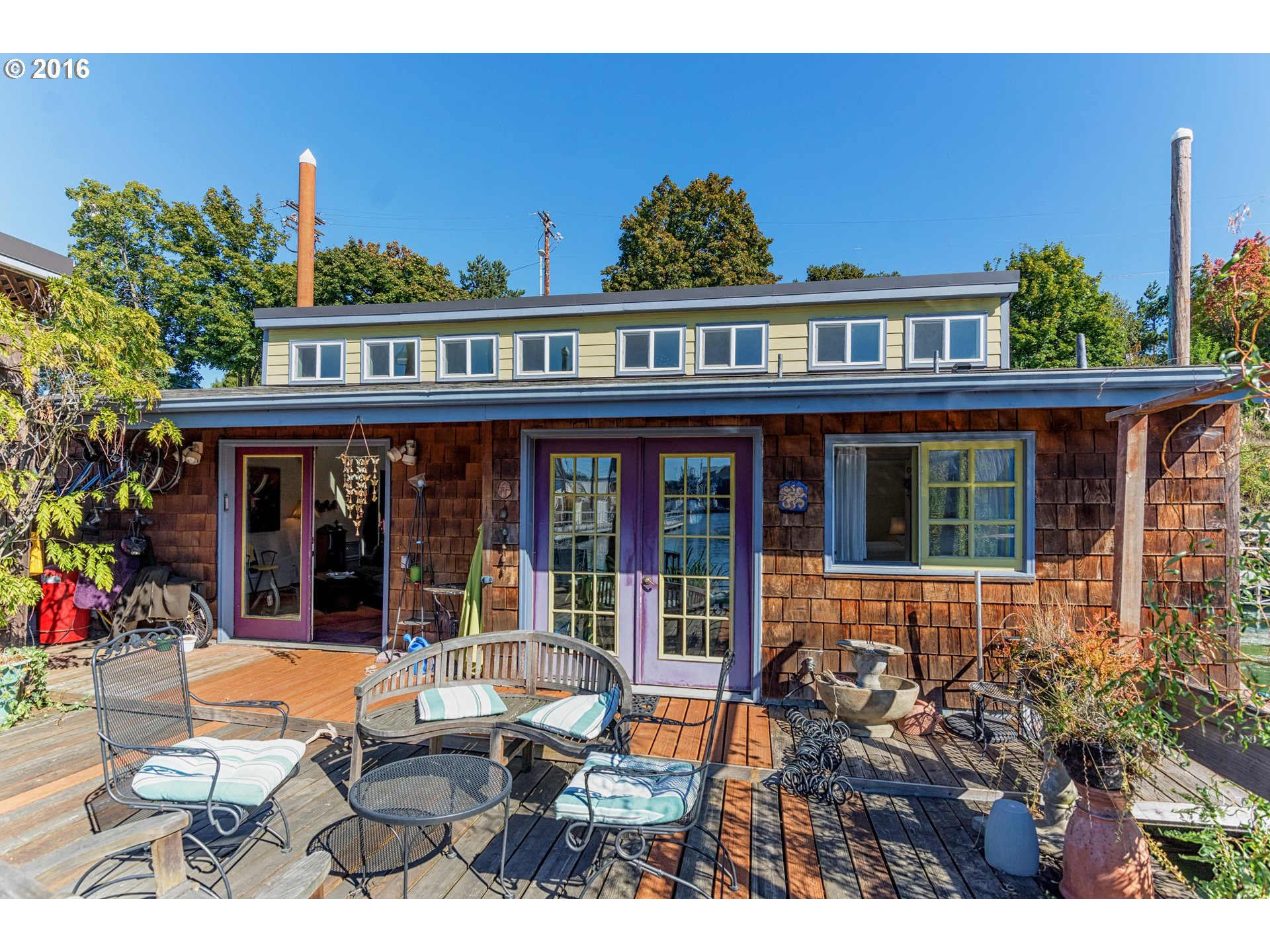

When you’re trying to purchase a house in a seller’s market, competition is stiff. So, you need to put your best foot forward, just as you would in a job interview, or I suppose, if you were a contestant on The Bachelor. Some buyers try to lowball a home offer, and that’s the quickest way for it to end up in the trashcan. However, it’s not the only way to completely turn buyers off.
If you submit an offer – that isn’t lowballed – and it is not accepted, there could be many explanations. But, besides price, can you the guess number one reason your home offer might be rejected? “It’s because you have an overall weak package,” says Jennifer Okhovat, an agent at Compass Sunset Strip in Los Angeles, CA.
But what constitutes a weak package?
A weak package could include one or more undesirable or incomplete items. “This could mean the buyer probably doesn’t include proof of down payment and funds to close, or they have contingencies,” Okhovat explains.
- Will the seller's market continue? Check out our US housing market forecast.
A contingency is one of those, “I can’t buy your house until XYZ happens,” scenarios, and sellers hate them. For example, the buyer can’t purchase a new home until their current home sells. Or, if the home inspection reveals a problem, a contingency allowed the buyer to either renegotiate or back away from the sell. (More common types of contingencies involve the loan approval process, or the home appraisal, and are standard in most real estate contracts, however).
“An inspection contingency is the top reason a seller may reject an offer,” says Jared Parker, an agent with Gibson Sotheby's International Realty, in Boston, MA. This is especially the case with two similar priced offers. If one includes an inspection contingency and the other doesn't a seller will likely go with the offer with no contingency, even if it means losing out on a few thousand dollars.
- See also: The best color to paint your house before you sell
Why would a contingency cause your offer to be rejected?
Besides getting a good price for their home, a seller's other major goal is to get to closing. Contingencies make it harder to do that, because they give the buyer a loophole to back out of the sale altogether.
Refraining from buying a house until your home sells sounds like a logical thing to do, as does wanting to renegotiate or change your mind if a home inspection reveals problems. So, why would these actions cause your offer to be rejected?
Join our newsletter
Get small space home decor ideas, celeb inspiration, DIY tips and more, straight to your inbox!
“If one buyer has a home sale contingency and the others don't, that offer will be less appealing since the sellers would face the uncertainty of waiting to see if the buyers' current home sells before they can complete the transaction,” says Tory Keith, president of Board and Park in Natick, MA.
Regarding financing and inspection contingencies, she admits that they are important to buyers because they minimize risk, but warns they can make an offer less desirable when compared to offers that are non-contingent. “In a multiple offer situation, sellers are going to choose not just the highest price, but the offer that has the best chance of a smooth closing with no surprises along the way,” Keith explains.
If you look at this from the seller’s perspective, it’s easy to see why they would pass on the offer with a home inspection. “When there's no inspection contingency, the sellers do not have to do any work or make any improvements to the property,” Parker says. And who would choose to do that if they didn’t have to?
What should home buyers do instead?
How can you avoid ending up in a contingency scenario that decreases your chance of getting your dream home? Okhovat recommends having your agents find out which terms are most important to the seller. “Is it price? Is it terms - contingency periods, closing timelines, or a flexible rent-back for the seller?” To be competitive, she says you need to know the seller’s preferences.
And here’s another tip: “Buyers should sell their current house before shopping, or confirm with their lender that they can carry both properties temporarily to avoid a home sale contingency,” advises Keith.
Regarding financial contingencies, she recommends having a proof of funds letter or a strong pre-approval in place. “In addition, buyers can increase their earnest money and/or deposit amounts to give the sellers added confidence.”
Although some buyers are forgoing inspection contingencies, it can be risky to waive the inspection entirely. “Buyers can include an inspection threshold, where they would only attempt to negotiate issues with the sellers if repairs exceed a certain amount,” Keith recommends. “This tells the sellers that buyers won't nitpick or use the inspection as an excuse to walk away unless there are major problems.”
Parker agrees that it’s important for buyers feel comfortable with their offers. He offers another option to consider. “One thing buyers can do is ask the listing agent if they can bring along an inspector to their showing, to help them get an idea of the condition of the home before they make an offer.”
Terri Williams is a journalist with real estate, home improvement, and product review bylines at Architectural Digest, Real Simple, Realtor.com, Bob Vila, Yahoo, MSN, The San Francisco Chronicle, The Houston Chronicle, and Apartment Therapy. She also covers business topics, with bylines at USA Today, The Economist, US New & World Report, Verizon, and several other brands that you’ve probably heard of. Follow her adventures on Twitter.
-
 3 top tips for avoiding real estate scams in 2021: don't fall victim to fraudsters
3 top tips for avoiding real estate scams in 2021: don't fall victim to fraudstersWhether you're buying or renting a home, these are the common real estate scams out there – and ways to avoid them
By Anna Cottrell Published
-
 Selling your house? These two inexpensive home projects have a huge payoff
Selling your house? These two inexpensive home projects have a huge payoffIt may be a seller's market, but there are still steps you can take to increase your home's sale price. These two projects are inexpensive to tackle, but will reap a big reward.
By Terri Williams Published
-
 Selling your home? These 9 red flags immediately turn buyers off, experts say
Selling your home? These 9 red flags immediately turn buyers off, experts sayNo one wants to buy your house if they see this
By Terri Williams Last updated
-
 The one reason you should always walk away from a home sale, according to realtors
The one reason you should always walk away from a home sale, according to realtorsEven the right price can't make up for this problem, experts say.
By Terri Williams Published
-
 This HGTV 'Home Town' house is on the market for under $200k
This HGTV 'Home Town' house is on the market for under $200kSee what this Laurel, MS. house from HGTV's Home Town looks like today (and make it yours for under $200,000)
By Grace Stetson Published
-
 This floating bungalow in Portland gives new meaning to living 'on the water'
This floating bungalow in Portland gives new meaning to living 'on the water'If you're going to be hanging out at home, you might as well be on a houseboat.
By Grace Stetson Published
-
 Selling your home this spring? Here are 6 ways to prep now, according to realtors
Selling your home this spring? Here are 6 ways to prep now, according to realtorsThe spring real estate market is around the corner! Here's how to get your home open-house ready now.
By Terri Williams Published
-
 This chic Manhattan apartment is an absolute steal ... But there's a catch
This chic Manhattan apartment is an absolute steal ... But there's a catchThis renovated midtown space is a bargain, if you're willing to make one compromise
By Grace Stetson Published